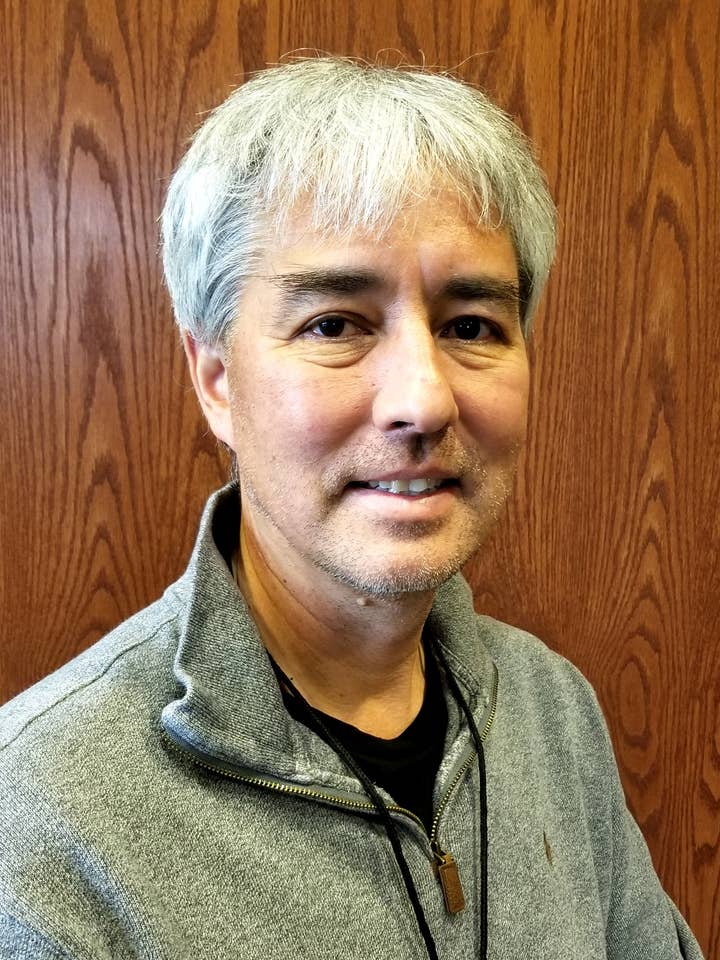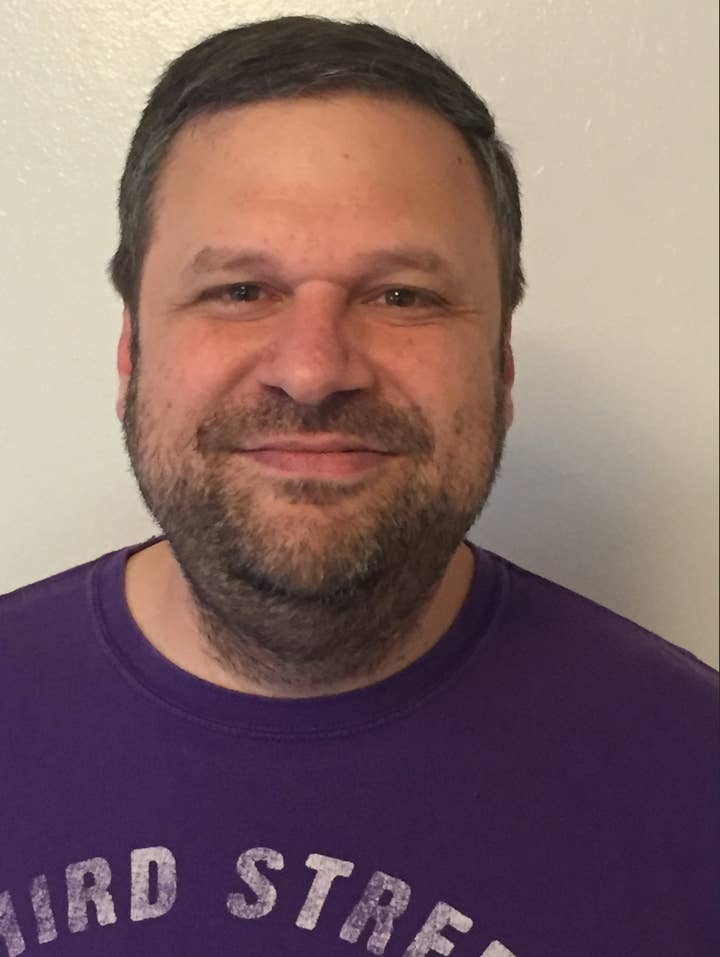Founder Mike Kulas returns to Volition after eight years
“There's nothing I'd rather do until retirement - true retirement this time”
Saints Row developer Volition has kicked off 2019 with a homecoming as its original founder Mike Kulas returns to the fold.
Kulas originally departed in 2011, 18 years after he first formed the company -- originally as Parallax Software. Now he takes on the role of general manager and, for studio development director Jim Boone, his return is a significant boost for Volition.
"Mike founded everything, he set the tone," Boone tells GamesIndustry.biz. "This place is his vision. Our culture comes from Mike. He is Volition, he's one of us. So the opportunity for him to come back and serve as the GM, which is what he has always done, is perfect.
"It's not a case where you bring someone in and have to get them used to what it's like working here, or used to the peculiarities of Volition because they've got their own way of doing things -- you don't have to do any of that with Mike, because he knows all of it. We took our cues from Mike. So for him to be able to hop in and just get going... It's only been a couple of days now but it feels like he's fallen right back into the rhythm. It's almost like he hasn't been gone."

Kulas technically left the studio eight years ago, but he has remained in contact with several of his colleagues during his break, even going to the poker games hosted at the studio.
"I actually got an idea of what it would be like to be married to the people at Volition, because some would constantly talk about work and I'd lose track or wouldn't even understand what they were talking about," he tells us.
At first, Kulas treated his departure as a form of retirement. In his own words, he "goofed off for about four years", spending more time with family, but as his children grew older, he decided he wanted to work again. He ended up working at Revival Productions on Overload, a spiritual successor to Parallax's Descent, but with that project "winding down now", he was uncertain what would come next.
"I thought I would just loaf again, and I was a little afraid I'd loaf for another four years - and in four years I'll be really old -- I'll hit a milestone I don't feel like thinking about," he says. "The opportunity just presented itself. At first I thought it was crazy, I'd been away for eight years, but the more I thought about it, the more I knew I'd never find anything I'd want to do as much as being here.
"There's nothing I'd rather do until I reach retirement -- true retirement, this time -- when I'm too feeble to get a job anywhere else... It's great seeing people I haven't seen in a long time. People keep coming up and saying 'I'm glad you're back', and that feels good. I hope they're glad I'm back a few years from now."
"I'd been away for eight years, but the more I thought about it, the more I knew I'd never find anything I'd want to do as much as being here"
Mike Kulas, Volition
When last we spoke to Kulas, work on Overload showed how tough it can be to catch up to a fast-moving industry like video games after just a few years away. Back then he told us "everything had changed" -- he was even unaware that polygons were no longer a limiting factor. Fortunately, his experience as an indie has been "really interesting" and helped him "come up to speed on all kinds of stuff" ahead of his return to AAA.
That said, his role at Volition will see him dealing more with people than programming. He's already got his old office back -- it's been a lounge for the past eight years, so until he chooses a desk he likes, most of his time is spent talking to staff on the two couches he has instead.
"The kind of projects that Volition does, they involve large numbers of people, they take a long time... well, I'm not sure they take any longer than Overload took, but let's not talk about that," he laughs. "And my role will be very different -- I won't be coding, I won't even be making many decisions directly related to the game. And if I have thoughts, I'm probably going to talk to Jim, I'm not going to say 'we should do this' to people because it's Jim's job to do that.
"I'll be farther away from the game, but what will be fulfilling for me is being around the people making it. And really, that's what I was doing when I left -- I hadn't directly made a game since FreeSpace 2. The last time I shipped a game [with my work] was 1999. So really it's been about being around the people and trying to enable them to do their jobs effectively to make great games."
Then there are the benefits for the studio itself. Kulas describes his return as "a positive change" and "good for morale", and one that brings Volition "closer to the structure that we shipped most of our games under". He also notes that Boone was "carrying a crazy heavy load by being the one guy at the top of the org chart" -- something he's more than happy to assist with.

"It's such a cliche, but it's lonely at the top. You want to talk to someone who's a peer sometimes. You know you're not always necessarily getting feedback from people when you're their boss. It's highly stressful to be the only guy... so having two people who are effectively peers and can talk to each other about anything -- and sometimes disagree, of course."
Boone chips in: "I'm sure now you'll agree with every decision I make."
"I will," Kulas laughs. "I'm the new guy."
A morale boost may be just what Volition needs. The studio's last project -- 2017's Agents of Mayhem -- fell short of expectations and even prompted layoffs, shortly before Jim Boone made his own return to the company.
More than a year on, and Boone reports that the studio's outlook is much brighter as it throws itself into its next project, although he acknowledges the toll Agents of Mayhem took on the team.
"Overall, at this point morale is pretty good in the studio," he says. "But AoM was probably the toughest game we've ever had in terms of the results, in terms of its performance critically and in sales.
"Mike founded everything, he set the tone. This place is his vision. Our culture comes from him. He is Volition"
Jim Boone, Volition
"Our company has been around a pretty long time, we've got a proud history, and that doesn't mean we've always succeeded in projects we've done. But even on the projects where we've missed on occasion, there's still something you can take pride in. I know a lot of people to this day will speak about Red Faction Guerrilla -- we maybe didn't sell as many units as we'd hoped, but it's one of those games that will often come up as one people revere, and it reviewed very well, so you can still take pride in it.
"Agents of Mayhem was a tough one, it was a blow to the studio, because a lot of people put a lot of time and effort into it, as all developers do. To see it come out that way was tough, so I think there's definitely that feeling of a return to form with everything we're doing on our next adventure right now."
Kulas, though not part of the studio at the time, recognises the impact Agents of Mayhem's poor performance had, but reiterates Boone's point about Volition's rich history of popular games. In his new role, he's keen to emphasise that this is what his staff should be focused on going forwards.
"It's important for the team to remember that the difference between a successful game and one that doesn't quite meet your goals is not necessarily that large," he observes. "It can come down to a few gameplay or structural decisions that didn't quite resonate with the public. But I think everyone who worked on the project can look at their contributions towards that game and be very proud. It's no different than if they'd put that work into a Saints Row, a Red Faction or a Freespace -- a lot of the components were very good.
"We understand what we need to do to make our next game very successful. Maybe morale isn't the right term. People need to be proud of what they did, and they are largely the team that built the successful games that Volition has had in the past. If one round doesn't quite go the way you want it to in life, that's not the predictor for what you're going to do in the future. Everything you've done cumulatively -- that's the predictor.
"The pieces are in place: Jim can focus more on the game, and I can focus more on the spreadsheets and budgets, which I actually like doing. I think we're positioning ourselves to be very successful on what we're working on next."
